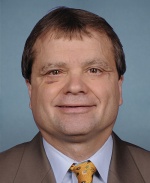Illinois' 5th Congressional District election (March 20, 2018 Democratic primary)
- General election: Nov. 6
- Voter registration deadline: Oct. 9
- Early voting: Sept. 27 - Nov. 5
- Absentee voting deadline: Nov. 20
- Online registration: Yes
- Same-day registration: Yes
- Voter ID: No
- Poll times: 6:00 a.m. to 7:00 p.m.
2020 →
← 2016
|
| Illinois' 5th Congressional District |
|---|
| Democratic primary Republican primary General election |
| Election details |
| Filing deadline: December 4, 2017 |
| Primary: March 20, 2018 General: November 6, 2018 Pre-election incumbent: Mike Quigley (Democrat) |
| How to vote |
| Poll times: 6 a.m. to 7 p.m. Voting in Illinois |
| Race ratings |
Cook Political Report: Solid Democratic Inside Elections: Solid Democratic Sabato's Crystal Ball: Safe Democratic |
| Ballotpedia analysis |
| U.S. Senate battlegrounds U.S. House battlegrounds Federal and state primary competitiveness Ballotpedia's Election Analysis Hub, 2018 |
| See also |
1st • 2nd • 3rd • 4th • 5th • 6th • 7th • 8th • 9th • 10th • 11th • 12th • 13th • 14th • 15th • 16th • 17th • 18th Illinois elections, 2018 U.S. Congress elections, 2018 U.S. Senate elections, 2018 U.S. House elections, 2018 |
Rep. Mike Quigley won the primary election for Illinois' 5th Congressional District on March 20, 2018, defeating his first primary challengers since he won the seat in a special election in 2009. Three candidates whom Politico identified as progressives eyed his seat: Sameena Mustafa, Steve Schwartzberg, and Benjamin Thomas Wolf.[1]
| Illinois voter? Dates you need to know. | |
|---|---|
| Primary election | March 20, 2018 |
| Candidate filing deadline | December 4, 2017 |
| Registration deadline | February 20 (in-person) & March 4 (online), 2018 |
| Absentee application deadline | March 15 (by mail) & March 19 (in-person), 2018 |
| General election | November 6, 2018 |
| Voting information | |
| Primary type | Open |
| Early voting deadline | March 20, 2018 |
| Polling locations: Polls were open from 6:00 a.m. to 7:00 p.m. Go to this page to find early voting locations and your assigned precinct for election day. | |
For more on related elections, please see:
- Illinois' 5th Congressional District election (March 20, 2018 Republican primary)
- Illinois' 5th Congressional District election, 2018
- United States House Democratic Party primaries, 2018
- United States House Republican Party primaries, 2018
- Democratic Party primaries in Illinois, 2018
- Republican Party primaries in Illinois, 2018
Candidates and election results
Incumbent Mike Quigley defeated Sameena Mustafa, Benjamin Thomas Wolf, and Steve Schwartzberg in the Democratic primary for U.S. House Illinois District 5 on March 20, 2018.
Democratic primary election
Democratic primary for U.S. House Illinois District 5
Candidate | % | Votes | ||
| ✔ |  | Mike Quigley | 62.5 | 66,254 |
 | Sameena Mustafa | 24.1 | 25,591 | |
 | Benjamin Thomas Wolf | 9.5 | 10,032 | |
 | Steve Schwartzberg | 4.0 | 4,196 | |
| Total votes: 106,073 | ||||
 = candidate completed the Ballotpedia Candidate Connection survey. = candidate completed the Ballotpedia Candidate Connection survey. | ||||
| If you are a candidate and would like to tell readers and voters more about why they should vote for you, complete the Ballotpedia Candidate Connection Survey. | ||||
Do you want a spreadsheet of this type of data? Contact our sales team. | ||||
Candidates
Sameena Mustafa
Mustafa has worked in business, nonprofit, and the arts, according to a Chicago Sun-Times interview. Prior to the 2018 election she had spent 13 years in real estate as a tenant advocate. She also managed a Planned Parenthood clinic. Mustafa graduated from Northwestern University.[2]
Mustafa described herself on her campaign website as a "social and fiscal progressive". Among her campaign priorities were Medicare for all and abortion access.[3] Mustafa was backed by Americans for Democratic Action and Northside Democracy for America. She raised $79,548 as of February 14, 2018.
Steve Schwartzberg
Schwartzberg is a former director of undergraduate studies for international studies at Yale University. He also taught at the University of Nevada Las Vegas. He earned his Ph.D. in history from Yale University, his master's degree from the Fletcher School of Law and Diplomacy, and his bachelor's degree from Reed College.[4]
Schwartzberg listed his top five priorities on his campaign website as, "Universal Health Care, Massive Infrastructure Investment, A Foreign Policy for Civility, Respect for Tribal Sovereignty, [and] A Freedom Budget for the 21st Century." He was backed by the Illinois Berniecrats and Social Democrats, USA.[5][6]
Mike Quigley
Quigley was first elected to Congress in 2009. Prior to his election, he served on the Cook County Board of Commissioners.
Quigley reported $667,148 in contributions as of February 14, 2018. He was backed by Sens. Tammy Duckworth (D) and Dick Durbin (D) and Rep. Jan Schakowsky (D), as well as the Illinois AFL-CIO and Illinois Planned Parenthood. According to his campaign website, Quigley's focus has been on "full LGBT equality, a woman’s right to choose and commonsense gun law reforms that will make our communities safer."[7]
Benjamin Thomas Wolf
Wolf graduated from Kent State University in 1998 with a bachelor's degree in political science. He also holds a master's in national security studies from The American Military University and a Ph.D. from the Chicago School of Professional Psychology. In the months leading up to the 2018 election, Wolf was a professor in Chicago. He has also worked with the U.S. Department of State. Wolf graduated from the FBI Academy and worked within the National Security Division.[8]
Wolf gained media attention in February 2018 for releasing a campaign ad with a photo of him smoking cannabis, the legalization of which was listed as one of his campaign platforms on his website. Other campaign themes included universal healthcare and free higher education.[9] Wolf reported $62,290 in contributions as of February 14, 2018.
Campaign finance
The table below details the campaign finance reports of candidates in this race who had raised at least $10,000 as of February 14, 2018.
Endorsements
Ballotpedia tracks endorsements of candidates by organizations and elected and appointed officials. To notify us of other endorsements, please email us.
| Democratic primary endorsements | |||
|---|---|---|---|
| Endorsement | Mustafa[10] | Quigley[11] | Schwartzberg[12] |
| Federal officials | |||
| Tammy Duckworth, U.S. senator | ✔ | ||
| Dick Durbin, U.S. senator | ✔ | ||
| Jan Schakowsky, U.S. representative | ✔ | ||
| State figures | |||
| Susana Mendoza, Illinois state comptroller | ✔ | ||
| Heather Steans, Illinois state senator | ✔ | ||
| Local figures | |||
| Bridget Gainer, Cook County commissioner | ✔ | ||
| John Arena, Chicago city alderman | ✔ | ||
| Ameya Pawar, Chicago city alderman | ✔ | ||
| Michele Smith, Chicago city alderwoman | ✔ | ||
| Organizations | |||
| Americans for Democratic Action | ✔ | ||
| Illinois AFL-CIO | ✔ | ||
| Illinois Association of Firefighters | ✔ | ||
| Illinois Berniecrats | ✔ | ||
| Illinois Citizen Action | ✔ | ||
| Illinois Planned Parenthood | ✔ | ||
| Illinois Sierra Club | ✔ | ||
| Illinois State Council SEIU | ✔ | ||
| Independent Voters of Illinois - Independent Precinct Organization | ✔ | ||
| Justice Democrats | ✔ | ||
| Northside Democracy for America | ✔ | ||
| Social Democrats, USA | ✔ | ||
| Media outlets | |||
| Chicago Sun-Times[13] | ✔ | ||
Noteworthy events
Wolf accused of domestic abuse, inflating resume
Domestic abuse
Benjamin Thomas Wolf gained national media attention first for calling himself the "Cannabis candidate"[14] and smoking cannabis in front of the American flag for a campaign ad. But the attention shifted when Politico reported that he had been accused of domestic abuse by a former girlfriend and of inflating his resume.[15]
Wolf's former girlfriend Katarina Coates told Politico,
| “ | He actually hit me, threw me to the ground, put his foot on my chest. He was really angry. He grabbed my face...I thought it was normal. I cannot explain the logic. It seemed like he cared about me when he did that. After that time he stood on my chest, he went and took me for chocolate cake. I kind of associated it with his caring. ... There were times I would ask him, Do you ever regret hitting me?’ He would say: 'No, but I'm relieved when you put your head down so I don't have to do it again.'[15][16] | ” |
Wolf denied the accusation, responding that Coates had harassed him, leading him to file police reports to protect his family. He called the accusations politically motivated and said they resulted from the national attention he had been getting for his campaigning.
| “ | I walk around this city with a black leather jacket and leather boots and this city is scared of me...We are talking about sex and drugs, we have no corporate donors.[15][16] | ” |
Politico also reported that Wolf was blocked from Women's March Chicago's Facebook group after multiple women complained to the group's organizers. "Once he started posting, a lot of people started contacting me as the admin of the page," said Emily Kraiem, a member of the group's board of directors. "He has a bad history with women, his background doesn't add up...Based on all the different things that we were hearing and the way he jumped into the fray and was conducting himself, we removed him out of our Facebook group."[15]
Resume inflation
Several Twitter accounts, including one called Wolf Detective, have focused on fact-checking Wolf's background. Wolf has described himself as an Iraq veteran and on Veteran's Day, responded to a tweet from his opponent Rep. Mike Quigley saying, "Wolf served multiple terms in Africa and Iraq. Wolf for Congress."[17][18] But according to Politico, Wolf never served in the military.
Wolf responded by saying, "People in the military get upset when I say I served in Iraq. The military doesn't have a patent on the word 'served'...I've been an amazing person in American history."[15]
Campaign advertisements
 Sameena Mustafa
Sameena Mustafa
Support
|
 Benjamin Thomas Wolf
Benjamin Thomas Wolf
Support
|
|
|
Race ratings
- See also: Race rating definitions and methods
| Race ratings: Illinois' 5th Congressional District election, 2018 | |||||||||
|---|---|---|---|---|---|---|---|---|---|
| Race tracker | Race ratings | ||||||||
| October 30, 2018 | October 23, 2018 | October 16, 2018 | October 9, 2018 | ||||||
| The Cook Political Report | Solid Democratic | Solid Democratic | Solid Democratic | Solid Democratic | |||||
| Inside Elections with Nathan L. Gonzales | Solid Democratic | Solid Democratic | Solid Democratic | Solid Democratic | |||||
| Larry J. Sabato's Crystal Ball | Safe Democratic | Safe Democratic | Safe Democratic | Safe Democratic | |||||
| Note: Ballotpedia updates external race ratings every two weeks throughout the election season. | |||||||||
District analysis
- See also: The Cook Political Report's Partisan Voter Index
- See also: FiveThirtyEight's elasticity scores
The 2017 Cook Partisan Voter Index for this district was D+20, meaning that in the previous two presidential elections, this district's results were 20 percentage points more Democratic than the national average. This made Illinois' 5th Congressional District the 66th most Democratic nationally.[19]
FiveThirtyEight's September 2018 elasticity score for states and congressional districts measured "how sensitive it is to changes in the national political environment." This district's elasticity score was 1.05. This means that for every 1 point the national political mood moved toward a party, the district was expected to move 1.05 points toward that party.[20]
State overview
Partisan control
This section details the partisan control of federal and state positions in Illinois heading into the 2018 elections.
Congressional delegation
- Following the 2016 elections, Democrats held both U.S. Senate seats in Illinois.
- Democrats held 11 of 18 U.S. House seats in Illinois.
State executives
- As of May 2018, Democrats held four of 7 state executive positions, Republicans held two, and the remaining position was officially nonpartisan.
- The governor of Illinois was Republican Bruce Rauner. The state held elections for governor and lieutenant governor on November 6, 2018.
State legislature
- Democrats controlled both chambers of the Illinois General Assembly. They had a 67-51 majority in the state House and a 37-22 majority in the state Senate.
Trifecta status
- Illinois was under divided government, meaning that the two parties shared control of the state government. Bruce Rauner (R) served as governor, while Democrats controlled the state legislature.
2018 elections
- See also: Illinois elections, 2018
Illinois held elections for the following positions in 2018:
- 18 U.S. House seats
- Governor and lieutenant governor
- Four lower state executive positions
- 39 of 59 state Senate seats
- 118 state House seats
- Municipal elections in Cook County
Demographics
| Demographic data for Illinois | ||
|---|---|---|
| Illinois | U.S. | |
| Total population: | 12,839,047 | 316,515,021 |
| Land area (sq mi): | 55,519 | 3,531,905 |
| Race and ethnicity** | ||
| White: | 72.3% | 73.6% |
| Black/African American: | 14.3% | 12.6% |
| Asian: | 5% | 5.1% |
| Native American: | 0.2% | 0.8% |
| Pacific Islander: | 0% | 0.2% |
| Two or more: | 2.2% | 3% |
| Hispanic/Latino: | 16.5% | 17.1% |
| Education | ||
| High school graduation rate: | 87.9% | 86.7% |
| College graduation rate: | 32.3% | 29.8% |
| Income | ||
| Median household income: | $57,574 | $53,889 |
| Persons below poverty level: | 16.8% | 11.3% |
| Source: U.S. Census Bureau, "American Community Survey" (5-year estimates 2010-2015) Click here for more information on the 2020 census and here for more on its impact on the redistricting process in Illinois. **Note: Percentages for race and ethnicity may add up to more than 100 percent because respondents may report more than one race and the Hispanic/Latino ethnicity may be selected in conjunction with any race. Read more about race and ethnicity in the census here. | ||
As of July 2016, Illinois' three largest cities were Chicago (pop. est. 2.7 million), Aurora (pop. est. 200,000), and Joliet (pop. est. 150,000).[21][22]
State election history
This section provides an overview of federal and state elections in Illinois from 2000 to 2016. All data comes from the Illinois State Board of Elections.
Historical elections
Presidential elections, 2000-2016
This chart shows the results of the presidential election in Illinois every year from 2000 to 2016.
| Election results (President of the United States), Illinois 2000-2016 | |||||
|---|---|---|---|---|---|
| Year | First-place candidate | First-place candidate votes (%) | Second-place candidate | Second-place candidate votes (%) | Margin of victory (%) |
| 2016 | 55.8% | 38.8% | 17.0% | ||
| 2012 | 57.6% | 40.7% | 16.9% | ||
| 2008 | 61.9% | 36.8% | 25.1% | ||
| 2004 | 54.8% | 44.5% | 10.3% | ||
| 2000 | 54.6% | 42.6% | 12.0% | ||
U.S. Senate elections, 2000-2016
This chart shows the results of U.S. Senate races in Illinois from 2000 to 2016. Every state has two Senate seats, and each seat goes up for election every six years. The terms of the seats are staggered so that roughly one-third of the seats are up every two years.
| Election results (U.S. Senator), Illinois 2000-2016 | |||||
|---|---|---|---|---|---|
| Year | First-place candidate | First-place candidate votes (%) | Second-place candidate | Second-place candidate votes (%) | Margin of victory (%) |
| 2016 | 54.9% | 39.8% | 15.1% | ||
| 2014 | 53.5% | 42.7% | 10.8% | ||
| 2010 | 48.0% | 46.4% | 1.6% | ||
| 2008 | 67.8% | 28.5% | 39.3% | ||
| 2004 | 70.0% | 27.0% | 43.0% | ||
| 2002 | 60.3% | 38.0% | 22.3% | ||
Gubernatorial elections, 2000-2016
This chart shows the results of the four gubernatorial elections held between 2000 and 2016. Gubernatorial elections are held every four years in Illinois.
| Election results (Governor), Illinois 2000-2016 | |||||
|---|---|---|---|---|---|
| Year | First-place candidate | First-place candidate votes (%) | Second-place candidate | Second-place candidate votes (%) | Margin of victory (%) |
| 2014 | 50.3% | 46.3% | 4.0% | ||
| 2010 | 46.8% | 45.9% | 0.9% | ||
| 2006 | 49.8% | 39.3% | 10.5% | ||
| 2002 | 52.2% | 45.1% | 7.1% | ||
Congressional delegation, 2000-2016
This chart shows the number of Democrats and Republicans who were elected to represent Illinois in the U.S. House from 2000 to 2016. Elections for U.S. House seats are held every two years.
Trifectas, 1992-2017
A state government trifecta occurs when one party controls both chambers of the state legislature and the governor's office.
Illinois Party Control: 1992-2026
20 years of Democratic trifectas • Two years of Republican trifectas
Scroll left and right on the table below to view more years.
| Year | 92 | 93 | 94 | 95 | 96 | 97 | 98 | 99 | 00 | 01 | 02 | 03 | 04 | 05 | 06 | 07 | 08 | 09 | 10 | 11 | 12 | 13 | 14 | 15 | 16 | 17 | 18 | 19 | 20 | 21 | 22 | 23 | 24 | 25 | 26 |
|---|---|---|---|---|---|---|---|---|---|---|---|---|---|---|---|---|---|---|---|---|---|---|---|---|---|---|---|---|---|---|---|---|---|---|---|
| Governor | R | R | R | R | R | R | R | R | R | R | R | D | D | D | D | D | D | D | D | D | D | D | D | R | R | R | R | D | D | D | D | D | D | D | D |
| Senate | D | R | R | R | R | R | R | R | R | R | R | D | D | D | D | D | D | D | D | D | D | D | D | D | D | D | D | D | D | D | D | D | D | D | D |
| House | D | D | D | R | R | D | D | D | D | D | D | D | D | D | D | D | D | D | D | D | D | D | D | D | D | D | D | D | D | D | D | D | D | D | D |
See also
- United States House of Representatives elections in Illinois, 2018
- United States House elections in Illinois (March 20, 2018 Democratic primaries)
- Illinois' 5th Congressional District election (March 20, 2018 Republican primary)
- United States House of Representatives elections, 2018
Footnotes
- ↑ Politico, "Progressives storm Democratic primaries," February 11, 2018
- ↑ Chicago Sun-Times, "Sameena Mustafa," February 8, 2018
- ↑ Sameena Mustafa, "2018 campaign website," accessed March 5, 2018
- ↑ Steve Schwartzberg 2018 campaign website, "About," accessed March 5, 2018
- ↑ Steve Schwartzberg 2018 campaign website, "Issues," accessed March 5, 2018
- ↑ Steve Schwartzberg 2018 campaign website, "Endorsement," accessed March 5, 2018
- ↑ Mike Quigley 2018 campaign website, "About," accessed March 5, 2018
- ↑ Benjamin Thomas Wolf 2018 campaign website, "Bio," accessed March 5, 2018
- ↑ Benjamin Thomas Wolf 2018 campaign website, "Platform," accessed March 5, 2018
- ↑ Sameena Mustafa, "Endorsements," accessed February 14, 2018
- ↑ Mike Quigley for Congress, "Endorsements," accessed February 14, 2018
- ↑ Steve Schwartzberg for Congress, "Endorsements," accessed February 14, 2018
- ↑ Chicago Sun-Times, "ENDORSEMENT: Mike Quigley for Congress in 5th District Democratic primary," February 13, 2018
- ↑ Benjamin Thomas Wolf 2018 campaign website, "Home," accessed March 8, 2018
- ↑ 15.0 15.1 15.2 15.3 15.4 Politico, "‘Cannabis candidate’ accused of abusing women and inflating his resume," March 7, 2018
- ↑ 16.0 16.1 Note: This text is quoted verbatim from the original source. Any inconsistencies are attributable to the original source.
- ↑ Wix, "Benjamin Thomas Wolf Announces Candidacy for the 5th Congressional District in Illinois," accessed March 8, 2018
- ↑ Twitter, "Wolf Detective on Twitter," accessed March 8, 2018
- ↑ Cook Political Report, "Introducing the 2017 Cook Political Report Partisan Voter Index," April 7, 2017
- ↑ FiveThirtyEight, "Election Update: The Most (And Least) Elastic States And Districts," September 6, 2018
- ↑ Illinois Demographics, "Illinois Cities by Population," accessed December 11, 2017
- ↑ U.S. Census Bureau, "Quickfacts Illinois," accessed December 11, 2017








